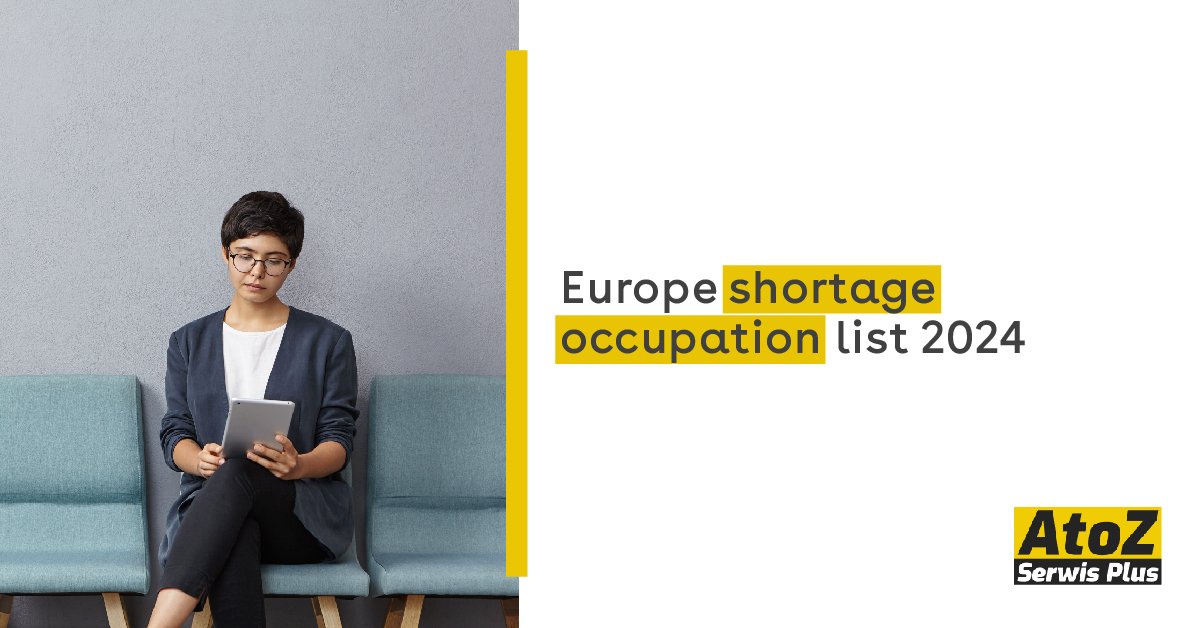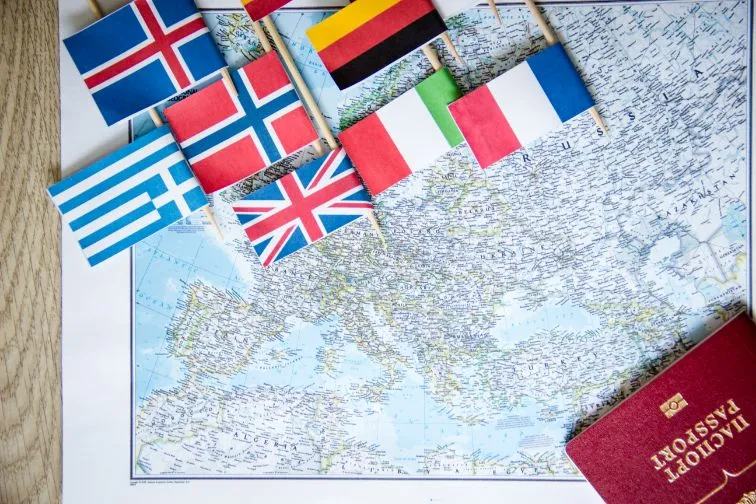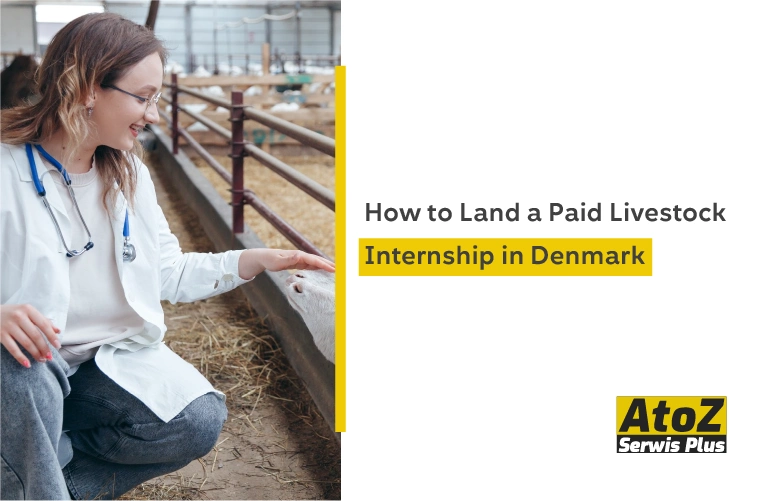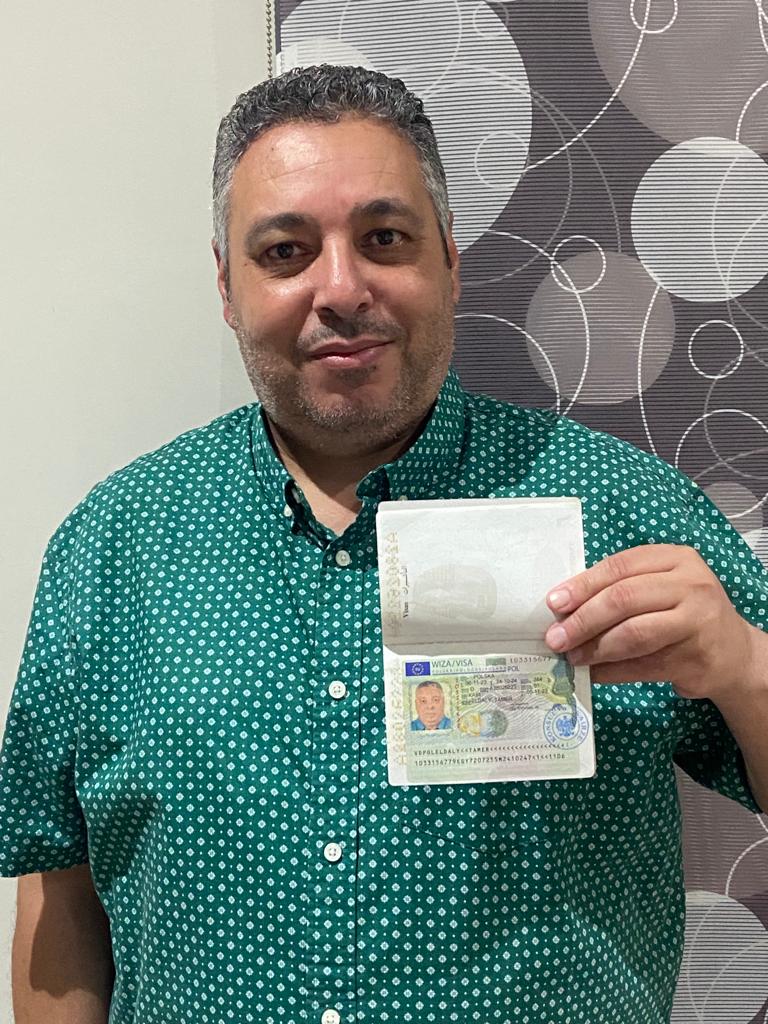

Europe Shortage Occupation List 2024
The European Union (E.U.) is a European political and economic union of member states. Here are ten facts about the member states of the E.U.:
- Founding Members: In 1951, the E.U. (originally the European Coal and Steel Community) was founded by six countries: Belgium, France, Germany, Italy, Luxembourg, and the Netherlands.
- Current Membership: As of 2024, the E.U. has 27 member states.
- Newest Member: Croatia is the most recent country to join the E.U., becoming a member on July 1, 2013.
- Population: The E.U. has a population of around 447 million people, making it the third-largest population entity in the world after China and India.
- Economy: The E.U. has a single market and a customs union, which allows for the free movement of goods, capital, services, and labour within member states.
- Currency: 20 of the 27 E.U. member states use the euro (€) as their official currency, forming the Eurozone.
- Languages: The E.U. has 24 official languages, reflecting its diverse cultural and linguistic heritage.
- Schengen Area: 22 of the 27 E.U. member states are part of the Schengen Area, which allows passport-free travel across most of the continent.
- European Parliament: E.U. citizens directly elect members of the European Parliament every five years. The Parliament is one of the E.U.'s legislative bodies.
- Brexit: The United Kingdom was a member of the E.U. from 1973 until it formally left on January 31, 2020, an event commonly referred to as Brexit.
Shortage Occupation
A shortage occupation is a job for which there are not enough skilled workers to fill vacancies in a particular region or country. Here are ten facts about shortage occupations:
-
Definition: Shortage occupations are those where employers have difficulty filling vacancies due to a lack of qualified candidates.
-
Healthcare Workers: Nurses, doctors, and other healthcare professionals are commonly listed as shortage occupations in many countries due to high demand and specialized skills.
-
Technology Sector: Due to rapid technological advancements, I.T. roles, such as software developers, cybersecurity experts, and data analysts, are often in short supply.
-
Engineering: Various engineering disciplines, including civil, mechanical, and electrical engineering, frequently appear on shortage occupation lists.
-
Skilled Trades: Electricians, plumbers, and welders are often in short supply, especially in regions undergoing significant infrastructure development.
-
Education: Teachers, especially those specializing in STEM (Science, Technology, Engineering, and Mathematics) subjects, are often in high demand.
-
Aging Workforce: Some shortages are driven by an ageing workforce, where many professionals are nearing retirement age without enough new entrants to replace them.
-
Agriculture: Seasonal agricultural workers are often in short supply, leading some countries to implement special visa programs to attract foreign workers.
-
Regional Differences: Shortage occupations can vary significantly from one country or region to another, depending on local economic conditions and educational systems.
-
Government Policies: Many countries create special visa categories or incentives to attract foreign workers to fill shortage occupations, aiming to boost economic growth and innovation.
Country 10 Facts
To provide a comprehensive overview, here are ten general facts about a country (let's use Germany as an example):
- Population: Germany has approximately 83 million people, making it the most populous country in the European Union.
- Capital: The capital of Germany is Berlin, the largest city in the country.
- Language: The official language of Germany is German.
- Economy: Germany has the largest economy in Europe and the fourth-largest globally, known for its strong industrial base and advanced technology sector.
- Education: Germany is renowned for its high-quality education system and offers domestic and international students tuition-free university education.
- Automotive Industry: Germany is home to some of the world's leading automotive companies, including Volkswagen, BMW, Mercedes-Benz, and Audi.
- History: Germany has a rich and complex history, including the periods of the Holy Roman Empire, the Weimar Republic, Nazi Germany, and its division and reunification during and after the Cold War.
- Culture: Germany has a vibrant cultural scene known for its contributions to music, philosophy, literature, and the arts. Notable figures include Ludwig van Beethoven, Johann Wolfgang von Goethe, and Immanuel Kant.
- Geography: Germany is in Central Europe and shares borders with nine countries: Denmark, Poland, the Czech Republic, Austria, Switzerland, France, Luxembourg, Belgium, and the Netherlands.
- Renewable Energy: Germany is a global leader in renewable energy, particularly wind and solar power, and has committed to phasing out nuclear power by 2022 and coal by 2038.
Life in Europe:
- Quality of Life: Europe is known for its high quality of life, with many countries consistently ranking high on global indices for health, education, and overall well-being. Countries like Norway, Switzerland, and Denmark often top these lists.
- Healthcare: Most European countries have universal healthcare systems, providing accessible and affordable medical services to all residents. The quality of healthcare is generally high, with advanced medical facilities and well-trained professionals.
- Education: Europe offers a robust education system, with many countries providing free or low-cost education from primary through higher education. Countries like Finland, Germany, and the Netherlands are renowned for their educational systems.
- Work-Life Balance: Europeans prioritize work-life balance, with generous vacation policies, parental leave, and shorter workweeks compared to other regions like the United States. For example, the average workweek in France is 35 hours.
- Cultural Diversity: Europe is a mosaic of cultures, languages, and traditions. This diversity is reflected in the continent's cuisine, festivals, architecture, and daily life. Multilingualism is common, and many Europeans speak two or more languages.
- Public Transportation: Europe boasts extensive and efficient public transportation networks, including trains, buses, trams, and subways. Countries like Switzerland, Germany, and France have particularly well-developed rail systems.
- Sustainable Living: Many European countries are leaders in sustainability and environmental conservation. Practices such as recycling, using renewable energy, and promoting public transportation and cycling are widespread.
- Social Safety Nets: European countries generally provide strong social safety nets, including unemployment benefits, social security, and pensions, which contribute to economic stability and reduce poverty rates.
- Historical and Cultural Heritage: Europe is rich in historical and cultural heritage, with numerous UNESCO World Heritage Sites, museums, and landmarks. Cities like Rome, Paris, and Athens are home to ancient monuments and art treasures.
- Culinary Traditions: Europe offers a diverse culinary landscape, with each country and region having its own traditional dishes and culinary practices. The continent is a food lover's paradise, from Italian pasta and French pastries to Spanish tapas and Greek mezes.
List of European Countries by Average Wage (2024)
Here's a summary of average monthly net salaries (after tax) for various European countries:
- Switzerland: €6,525
- Luxembourg: €5,511
- Denmark: €3,706
- Netherlands: €3,509
- Norway: €3,345
- Ireland: €3,123
- Germany: €3,091
- Austria: €2,620
- Belgium: €2,611
- France: €2,547
- Finland: €2,861
- Sweden: €2,780
- Spain: €1,928
- Italy: €1,726
- Cyprus: €1,626
- Estonia: €1,614
- Slovenia: €1,610
- Czech Republic: €1,604
- Malta: €1,557
- Poland: €1,443
- Lithuania: €1,372
- Croatia: €1,250
- Slovakia: €1,222
- Latvia: €1,174
- Portugal: €1,161
- Greece: €1,000
- Hungary: €987
- Bulgaria: €948
- Romania: €863
- Serbia: €715
- Bosnia and Herzegovina: €689
These figures highlight the variation in wages across different regions in Europe, with Western and Northern European countries generally having higher average salaries compared to Eastern and Southern European countries (Wikipedia) (Visual Capitalist) (Numbeo).
List of European Countries by Top Personal Income Tax Rate (2024)
Here is a summary of European countries ranked by their top statutory personal income tax rates:
- Denmark: 55.9%
- France: 55.4%
- Austria: 55.0%
- Sweden: 52.3%
- Finland: 51.4%
- Belgium: 53.5%
- Portugal: 53.0%
- Spain: 54.0%
- Ireland: 48.0%
- Germany: 47.5%
- Italy: 47.3%
- Netherlands: 49.5%
- Iceland: 46.3%
- Luxembourg: 45.8%
- Greece: 44.0%
- United Kingdom: 45.0%
- Norway: 39.6%
- Switzerland: 39.5%
- Turkey: 40.8%
- Poland: 36.0%
- Latvia: 31.0%
- Lithuania: 32.0%
- Slovakia: 25.0%
- Czech Republic: 23.0%
- Estonia: 20.0%
- Hungary: 15.0%
- Bulgaria: 10.0%
- Romania: 10.0%
These tax rates illustrate the significant variation in income tax policies across Europe, with Northern and Western European countries generally imposing higher rates compared to Eastern European countries (Tax Foundation) (Wikipedia) (Euronews).
Types of Work Visas in European Countries
Here's a comprehensive list of work visa types for various European Union (E.U.) countries, including non-EU Schengen members and select countries from the European Economic Area (EEA):
-
Austria:
- Red-White-Red Card: For highly skilled workers, key workers, and graduates of Austrian universities.
- Job Seeker Visa: This is for highly skilled workers looking for employment.
-
Belgium:
- Type B Work Permit: This is for foreign workers with a specific job offer.
- E.U. Blue Card: For highly skilled professionals with higher education qualifications.
-
Bulgaria:
- E.U. Blue Card: For highly qualified employment.
- Work Permit: This is for foreign nationals with a job offer.
-
Croatia:
- Work and Residence Permit: This is for foreign workers with a job offer.
- E.U. Blue Card: For highly skilled professionals.
-
Cyprus:
- Work Permit: This is for foreign nationals with a job offer in Cyprus.
- Temporary Residence and Employment Permit: For various employment categories.
-
Czech Republic:
- Employee Card: For long-term employment.
- E.U. Blue Card: For highly qualified workers.
-
Denmark:
- Positive List Scheme: For professionals in shortage occupations.
- Pay Limit Scheme: For high-income earners.
-
Estonia:
- Temporary Residence Permit for Employment: This is for foreign workers with a job offer.
- E.U. Blue Card: For highly qualified employment.
-
Finland:
- Residence Permit for an Employed Person: For various employment categories.
- Highly Skilled Worker Visa: This is for professionals with high expertise.
-
France:
- Talent Passport: For highly skilled professionals, researchers, and entrepreneurs.
- Temporary Worker Visa: For short-term employment.
-
Germany:
- E.U. Blue Card: For highly skilled workers with a university degree.
- Job Seeker Visa: This is for skilled professionals looking for employment.
-
Greece:
- Work Visa: This is for foreign nationals with a job offer in Greece.
- E.U. Blue Card: For highly qualified workers.
-
Hungary:
- Residence Permit for Employment: This is for foreign nationals with a job offer.
- E.U. Blue Card: For highly qualified workers.
-
Ireland:
- Critical Skills Employment Permit: For occupations with shortages.
- General Employment Permit: For various job offers.
-
Italy:
- Work Visa: For various employment categories.
- E.U. Blue Card: For highly qualified workers.
-
Latvia:
- Work Permit: This is for foreign nationals with a job offer.
- E.U. Blue Card: For highly qualified workers.
-
Lithuania:
- Work Permit: This is for foreign nationals with a job offer.
- E.U. Blue Card: For highly qualified workers.
-
Luxembourg:
- Work Permit: This is for foreign nationals with a job offer.
- E.U. Blue Card: For highly qualified workers.
-
Malta:
- Single Permit: For residence and work.
- E.U. Blue Card: For highly qualified workers.
-
Netherlands:
- Highly Skilled Migrant Visa: For highly skilled workers.
- Intra-Corporate Transferee Residence Permit: For multinational company transfers.
-
Poland:
- Work Permit: This is for foreign nationals with a job offer.
- E.U. Blue Card: For highly qualified workers.
-
Portugal:
- Job Seeker Visa: Allows entry to find employment.
- D7 Visa: For retirees and income earners from abroad.
-
Romania:
- Work Permit: This is for foreign nationals with a job offer.
- E.U. Blue Card: For highly qualified workers.
-
Slovakia:
- Work Permit: This is for foreign nationals with a job offer.
- E.U. Blue Card: For highly qualified workers.
-
Slovenia:
- Single Permit: For residence and work.
- E.U. Blue Card: For highly qualified workers.
-
Spain:
- Highly Skilled Professional Visa: For managerial or highly qualified positions.
- Seasonal Work Visa: For temporary employment.
-
Sweden:
- Work Permit: This is for foreign nationals with a job offer.
- E.U. Blue Card: For highly qualified workers.
-
Norway (EEA):
- Skilled Worker Visa: This is for professionals with job offers.
- Job Seeker Visa: This is for job searches within Norway.
-
Switzerland (Schengen but non-EU):
- L Permit: For short-term employment.
- B Permit: For long-term employment.
Cost of living in the European Union
| Country | Monthly Cost (Single, Excluding Rent) | 1-Bedroom Apartment (City Center) | 1-Bedroom Apartment (Outside Center) | Utilities (Monthly) | Public Transport (Monthly) | Meal (Inexpensive Restaurant) | Sources |
|---|---|---|---|---|---|---|---|
| Austria | €900 | €900 | €650 | €180 | €50 | €12 | Number |
| Belgium | €950 | €900 | €700 | €150 | €49 | €14 | Expatistan |
| Bulgaria | €500 | €400 | €250 | €90 | €25 | €8 | Number |
| Croatia | €750 | €550 | €350 | €150 | €40 | €10 | Expatistan |
| Cyprus | €800 | €600 | €450 | €120 | €40 | €12 | Number |
| Czech Republic | €850 | €700 | €500 | €150 | €20 | €8 | Expatistan |
| Denmark | €1,000 | €1,200 | €800 | €180 | €55 | €15 | Numbeo, Expatistan |
| Estonia | €800 | €600 | €400 | €120 | €30 | €10 | Number |
| Finland | €950 | €900 | €650 | €150 | €60 | €12 | Expatistan |
| France | €1,000 | €1,000 | €700 | €150 | €60 | €15 | Number |
| Germany | €950 | €1,000 | €700 | €200 | €70 | €12 | Expatistan |
| Greece | €700 | €500 | €350 | €120 | €30 | €10 | Number |
| Hungary | €700 | €450 | €300 | €100 | €30 | €9 | Expatistan |
| Ireland | €1,100 | €1,200 | €850 | €160 | €100 | €15 | Number |
| Italy | €850 | €800 | €550 | €150 | €35 | €12 | Expatistan |
| Latvia | €700 | €450 | €300 | €120 | €30 | €10 | Number |
| Lithuania | €750 | €500 | €350 | €120 | €30 | €10 | Expatistan |
| Luxembourg | €1,100 | €1,200 | €850 | €200 | €50 | €18 | Number |
| Malta | €850 | €700 | €500 | €100 | €26 | €15 | Expatistan |
| Netherlands | €1,000 | €1,200 | €850 | €180 | €95 | €15 | Number |
| Poland | €750 | €500 | €350 | €120 | €24 | €8 | Expatistan |
| Portugal | €800 | €600 | €400 | €120 | €40 | €10 | Number |
| Romania | €600 | €450 | €300 | €100 | €15 | €8 | Expatistan |
| Slovakia | €700 | €500 | €350 | €120 | €25 | €9 | Number |
| Slovenia | €750 | €600 | €400 | €120 | €30 | €10 | Expatistan |
| Spain | €800 | €700 | €500 | €120 | €40 | €12 | Number |
| Sweden | €1,000 | €1,000 | €700 | €150 | €80 | €15 | Expatistan |
Notes
- Monthly Cost (Single, Excluding Rent): Represents a single person's average monthly cost of living, excluding rent.
- 1-Bedroom Apartment (City Center): Average monthly rent for a 1-bedroom apartment in the city centre.
- 1-Bedroom Apartment (Outside Center): Average monthly rent for a 1-bedroom apartment outside the city centre.
- Utilities (Monthly): This is the average monthly cost of basic utilities (electricity, heating, cooling, water, garbage) for an 85m2 apartment.
- Public Transport (Monthly): Average monthly public transportation pass cost.
- Meal (Inexpensive Restaurant): Average meal cost at an inexpensive restaurant.
These estimates provide a general idea of the cost of living across various European countries, though individual experiences may vary based on lifestyle, location, and personal spending habits. Always check multiple sources and local cost-of-living calculators for the most accurate and up-to-date information.
About AtoZ Serwis Plus
AtoZ Serwis Plus is a reputable and well-known B2C immigration agency that has been providing specialized immigration services since 2009. With company registration offices in Poland, Portugal, Malta, Germany, and Romania and partner offices in various countries worldwide, it offers individualized immigration services to clients globally.
Supported by Polish attorneys and with company registration numbers Regon: 382604058, NIP: 5252780856, and KRS: 0000770916, AtoZ Serwis Plus Sp. z o.o. is a Polish Overseas Career Consultant and is considered one of the largest B2C immigration firms in Europe. It works closely with regulated and licensed immigration lawyers in its offices in Poland and Portugal.
AtoZ Serwis Plus has extensive experience managing international recruitment projects and specializes in providing staffing services. They assist individuals from countries such as Ukraine, Belarus, Moldova, Russia, Georgia, Armenia, Bangladesh, Nepal, India, and others to find employment opportunities in Serbia, Croatia, Romania, Poland, Malta, Portugal, Germany, and other European countries.
Their services cater to individuals seeking professional growth and those looking to relocate permanently to Europe. Z Serwis Plus charges reasonable fees for its services and offers flexible payment options.
Overall, AtoZ Serwis Plus aims to provide high-value immigration services, leveraging their expertise, international network, and partnerships to assist clients in achieving their career goals abroad.
For the Employer
Do you need new employees? Our Immigration agencies can assist you in finding the best candidates from various countries, including:
- CIS: Armenia, Azerbaijan, Belarus, Georgia, Kazakhstan, Kyrgyzstan, Tajikistan, Turkmenistan, Uzbekistan.
- Southeast Asia: Afghanistan, Bangladesh, India, Indonesia, Laos, Malaysia, Mongolia, Nepal, Pakistan, Philippines, Sri Lanka, Vietnam.
- Middle East: Bahrain, Kuwait, Iraq, Oman, Qatar, Saudi Arabia and the United Arab Emirates
- Africa: Nigeria, Algeria, Congo, Côte d'Id'IvoireEgypt, Ghana, Morocco, Sierra Leone, Togo, Tunisia.
- E.U. and EEA: E.U.ria, Belgium, Bulgaria, Croatia, Republic of Cyprus, Czech Republic, Denmark, Estonia, Finland, France, Germany, Greece, Hungary, Ireland, Italy, Latvia, Lithuania, Luxembourg, Malta, Netherlands, Poland, Portugal, Romania, Slovakia, Slovenia, Spain and Sweden.
We take a personalized approach to each of our clients and ensure that we understand your specific needs and requirements for candidates before deciding on the cost of our services. It's a critical step in the recruitment process, and we ask that you fill in all the fields as thoroughly as possible to help us and the job applicants.
Are you looking to Hire? Let us help you find the perfect candidates!
Step 1: Fill out the employer questionnaire. Please provide us with the necessary details about your job requirements and company. We'll use this information to customize our services for you. Fill in the form.
Step 2: Choose the best offer. Once we receive your completed questionnaire, we'll prepare a tailored proposal for recruitment, employee leasing, or outsourcing services.
Step 3: Welcome your new employee. We'll utilize our extensive network and resources to find the ideal candidate for your business. Please don't; we'll have favourable conditions for you and the employee.
Take advantage of exceptional talent for your company. Complete the questionnaire today, and let us handle your hiring needs.
For Job Seeker Registration
If you'd like to find work opportunities in Europe, please complete the application form on our website. Once you have filled out all the necessary details, our team at AtoZ Serwis Plus will review your application and contact you to give you more information. Don't hesitate to fill out the form and take the first step towards your new job. Fill in the form.
Would you like some advice? So that you know, the information I've included is for you to review. You'll always consult with your legal and tax advisor(s) and follow their guidance. AtoZ, Serwis Plus cannot assist with legal or tax matters. The information presented is not specific to any particular company or workforce nor reflects how AtoZ Serwis Plus products are distributed in any jurisdiction. In reading, it is general. AtoZ Serwis Plus makes no representations or warranties regarding this information's completeness or timeliness. It shall not be liable for any losses from using or relying on it. Please be careful when using this information.
Disclaimer: atozserwisplus.Pl is a FREE visa database and marketplace for immigration experts. This page's content does not provide legal advice. If you are applying, kindly consult an expert.

















